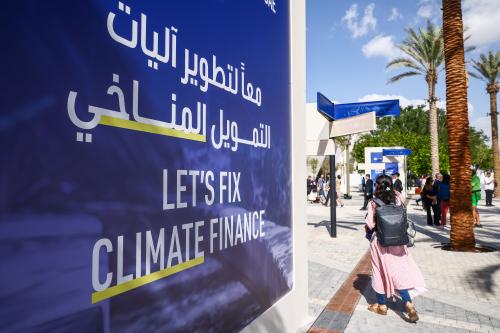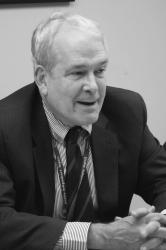

10:30 am EDT - 11:30 am EDT
Past Event
10:30 am - 11:30 am EDT
1775 Massachusetts Avenue, NW
Washington, DC
20036
As current events in the Middle East again make clear, over-dependence on fossil fuels presents a real threat to the energy security and stability of the world’s economies. More than ever, an urgent need exists to find and exploit sustainable, clean energy options. Just last month, the government of Denmark released its “Energy Strategy 2050,” which is one of the first national road maps charting a course for a fossil-free economy. Coupled with the global economic downturn, the United States and other nations will also need to generate clean energy policies that support greener economies, economic growth and the creation of new jobs. Given their mutual interests in these areas, the United States and Denmark have a strong basis for enhanced cooperation as they pursue these goals.
On March 15, Foreign Policy at Brookings hosted Denmark’s Prime Minister Lars Løkke Rasmussen for a discussion of Denmark’s global energy agenda for the 21st century. Prime Minister Rasmussen offered remarks on possible avenues toward greater energy security and independence and greener economies in the decades ahead. Vice President Martin Indyk, director of Foreign Policy, provided introductory remarks and Senior Fellow Fiona Hill, director of the Center on the United States and Europe, moderated the discussion, with Senior Fellow Charles Ebinger, director of the Energy Security Initiatve.



Amar Bhattacharya, David G. Victor, Samantha Gross
September 26, 2024

Costas Arkolakis, Conor Walsh
September 25, 2024

Brahima Sangafowa Coulibaly, Landry Signé, George Ingram, Priya Vora, Rebecca Winthrop, Caren Grown, Belinda Archibong, Brad Olsen, Jennifer L. O’Donoghue, Sweta Shah, Ghulam Omar Qargha
September 19, 2024